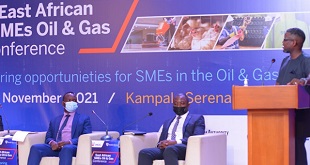
COMMENT:By Joseph Bossa
Under the non-punitive mechanism, the belief is that in a corruption-free environment, everybody gains
If the number of laws on the statutes books and the number of institutions designed to curb corruption were a measure of their effect on corruption, that vice would have no hiding place in Uganda. However, in spite of those attempts, corruption continues to thrive in this country. Why? It is time we took a fresh look at it.
First, we must re-examine what constitutes corruption which I take to be the broad term that includes unethical conduct, tribalism, nepotism and sectarianism. In this country, what we understand as corruption largely relates to dealings with officials employed in government and public institutions–the police, the judiciary, government departments, the hospitals etc. There is also a misconception, in my view, that it is not corruption if no huge tax payers’ money is involved. We should accept that it corruption whether grand or petty. And indeed there can be corruption even when no money is directly involved, although it most often is.
A human resource manager is corrupt if he habitually gives priority to, and favours over the rest, his relatives, friends and people from his corner of the country in recruitment and promotion in the public service. But we labour in vain fighting corruption in the public sector if we do not deal with the culture of corruption in the private sector. A few examples will suffice.
Take the owner of a school who demands as part of school requirements at the beginning of each term a number of reams of paper which both the owner and the parents know no student can ever consume in a term. The school owner proceeds to pass the excess reams to the stationary shop downtown for resale. Such school owner is corrupt. And the parents, who know exactly what the school owner does with the excess reams of paper but still deliver them, are complicit in that corruption because they tolerate it.
There is the contractor on a building site who finds out the minimum price at which the hardware owner will sell his commodities. He also knows the maximum price the developer will be prepared to pay. That difference between the two is called enjawulo in the industry. It is that difference that the contractor pockets for himself, leaving the developer none the wiser. Today it is taken as normal because it is more or less expected. The hardware owner, fearing to lose business to his competitor, agrees to issue to the contractor a receipt reflecting a higher price than the money he has actually received for his wares but which he knows is meant to deceive the property developer by the contractor. He is corrupt and so is the contractor.
A property valuer and land surveyor who collude with the bank loan applicant to issue a false report regarding the value and state of the proposed security are corrupt. They cause the bank to give a loan amount which may not be realised in case the security has to be sold upon default.
Some people go as far as cheating the organisations they ostensibly own. Take the “owner” of an NGO. Wishing to obtain a property from which to run the NGO, the founder convinces the usually overseas sponsor to finance the buying or renting of premises. He persuades the landlord of the property to sign an agreement showing a higher sum as rent or purchase price than he has taken. The founder pockets the difference. What do you call that?
Those are just a few examples of incidents which have made corruption look normal and are generally not regarded as deserving reproach. There are legions of examples of business practices that ought to be unacceptable in a fair society.
We have chosen to combat corruption by criminalising it but only in government and public institutions. We prosecute culprits employed in those places. But the criminal route does not appear to have yielded the expected results. Presently, prosecution of corrupt officials either does not take place at all or, if it does, rarely secures convictions because the criminal justice system; and that includes the police and other investigators who gather the evidence, together with the magistrates who assess it and pass judgment, is corrupt or corruptible.
It is, therefore, proposed that a non-punitive mechanism to fight corruption be tried, not as an alternative or a substitute, but in addition to both the public and private sectors. What we need is to build a non-corruption tolerance culture outside the penal system. We need to convince ourselves that in a corruption-free environment everybody gains. We may even appeal to our self-interest– that with wide-spread corruption we are all net losers because the unfair benefit we gain in one place in one transaction is cancelled out by the loss we suffer in other places in other transactions.
The school owner who demands excess reams of paper loses through the contractor who constructs his school structures and inflates the costs of building materials. The contractor loses by paying for extra and unneeded reams of paper for his child. The bank employee who authorises loans which are incapable of being repaid loses if the bank that employs him is forced to close because of erosion of capital.
Let the conversation begin to take a fresh look at corruption and how to fight it. But to start with, we must agree that corruption encompasses more than money, public servants and public institutions.
****
Joseph Bossa is the president of the opposition Uganda Peoples Congress party.
 The Independent Uganda: You get the Truth we Pay the Price
The Independent Uganda: You get the Truth we Pay the Price



Awesome! Its actually remarkable paragraph, I have got much clear idea
on the topic of from this paragraph.